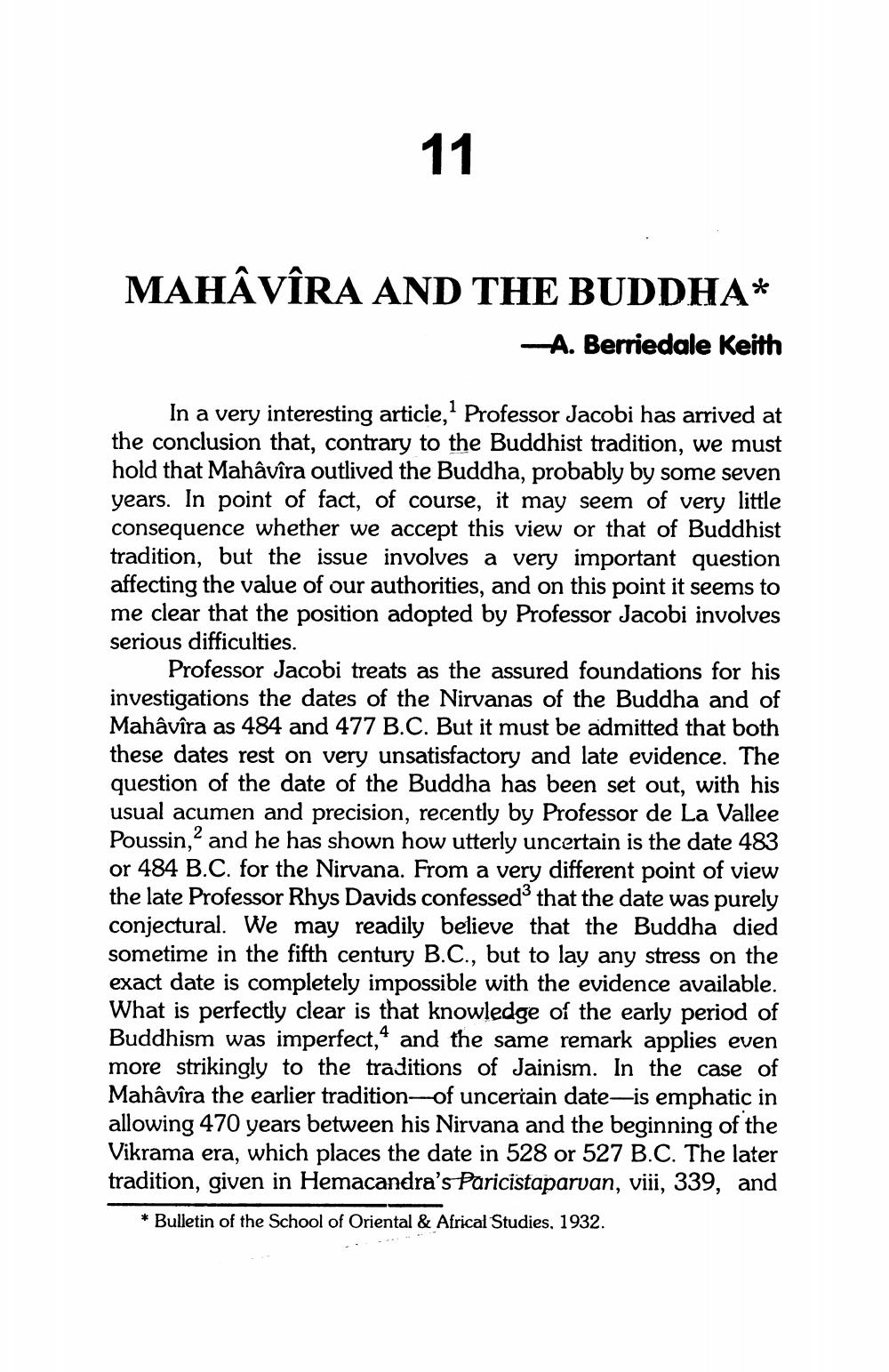________________
11
MAHAVIRA AND THE BUDDHA*
-A. Berriedale Keith
In a very interesting article,1 Professor Jacobi has arrived at the conclusion that, contrary to the Buddhist tradition, we must hold that Mahâvîra outlived the Buddha, probably by some seven years. In point of fact, of course, it may seem of very little consequence whether we accept this view or that of Buddhist tradition, but the issue involves a very important question affecting the value of our authorities, and on this point it seems to me clear that the position adopted by Professor Jacobi involves serious difficulties.
Professor Jacobi treats as the assured foundations for his investigations the dates of the Nirvanas of the Buddha and of Mahâvîra as 484 and 477 B.C. But it must be admitted that both these dates rest on very unsatisfactory and late evidence. The question of the date of the Buddha has been set out, with his usual acumen and precision, recently by Professor de La Vallee Poussin, and he has shown how utterly uncertain is the date 483 or 484 B.C. for the Nirvana. From a very different point of view the late Professor Rhys Davids confessed3 that the date was purely conjectural. We may readily believe that the Buddha died sometime in the fifth century B.C., but to lay any stress on the exact date is completely impossible with the evidence available. What is perfectly clear is that knowledge of the early period of Buddhism was imperfect, and the same remark applies even more strikingly to the traditions of Jainism. In the case of Mahâvîra the earlier tradition-of uncertain date-is emphatic in allowing 470 years between his Nirvana and the beginning of the Vikrama era, which places the date in 528 or 527 B.C. The later tradition, given in Hemacandra's Paricistaparvan, viii, 339, and
* Bulletin of the School of Oriental & Africal Studies, 1932.




